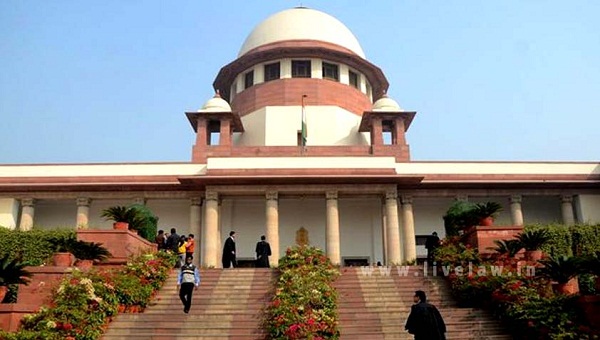
In a landmark and unanimous verdict, the Supreme Court through a 9-judge constitution bench ruled that right to privacy is a fundamental right under Article 21 of the constitution. The August 24 verdict of the Supreme Court overrules the apex court’s previous observations in cases of MP Sharma in 1950 (8-judge bench and Kharak Singh in 1961 (6-judge bench) that right to privacy is not a fundamental right.
With the current verdict, Right to Privacy is intrinsic to life and personal liberty under Article 21.
[blockquote width='100']
The right of privacy is a fundamental right. It is a right which protects the inner sphere of the individual from interference from both State, and non-State actors and allows the individuals to make autonomous life choices.
[/blockquote]
Reacting to the verdict, Union Law Minister Ravi Shankar Prasad said the government welcomes it and refused to see it as a setback. The government had always maintained that the right to privacy though fundamental is not absolute and subject to reasonable restrictions, claimed Prasad while speaking to reporters.
The government has clearly taken solace by the fact that the judgment has acknowledged its right to impose reasonable restrictions. PTI reports that Justice Abhay Manohar Sapre, who wrote a separate but concurring judgement declaring the right to privacy as a fundamental right under the Constitution, has also said that this right was not absolute and was “subject to certain reasonable restrictions” which the State was entitled to impose.
The judge, who was a part of the nine-judge constitution bench, said the right to privacy was one of those cherished rights which every civilised society recognises in every human being.
Justice Sapre held that “right to privacy” is part of the fundamental right of a citizen guaranteed under Part III of the Constitution, but “it is not an absolute right and is subject to certain reasonable restrictions which the State is entitled to impose on the basis of social, moral and compelling public interest in accordance with law."
WHAT HAPPENS TO AADHAAR?
Speaking to reporters post the verdict, lawyer Prashant Bhushan said that the issue of Aadhaar’s implementation will now come up before a smaller bench.
The Aadhaar scheme was challenged in the apex court in several petitions citing intrusion of privacy. The scheme collects personal details and biometrics (iris scan and finger prints).
The government argued that the collection of personal details benefits the poor and the right to privacy of the ‘elite’ comes secondary to the right of the poor and the masses to lead a dignified life. Aadhaar enables ensuring direct distribution of welfare to the poor and also has added benefits of countering corruption and terror funding and plugging leakages in welfare schemes.
The major contentions against collecting personal data in the Aadhaar scheme were breach of privacy, possibility of mass surveillance by the government, data leakages and misuse of data by private players.
Though the scheme was initiated with the aim of channelizing welfare schemes and plugging leakages, with time the ambit of Aadhaar went beyond the scope of welfare schemes and was demanded in other financial transactions such as income tax returns, banking, loans and pension schemes.
With the Aadhaar bill getting passed in March 2016, Aadhaar became mandatory for filing income tax returns and application for PAN.
But the question remained if collection of biometric information of citizens is violation of privacy. Thus, the Supreme Court decided to address the basic question – if right to privacy is a fundamental right.
With a 9-judge bench overruling the previous verdicts, right to privacy has been upheld as a fundamental right. However, its implication on the rollout of Aadhaar scheme is yet to be decided by the Supreme Court.